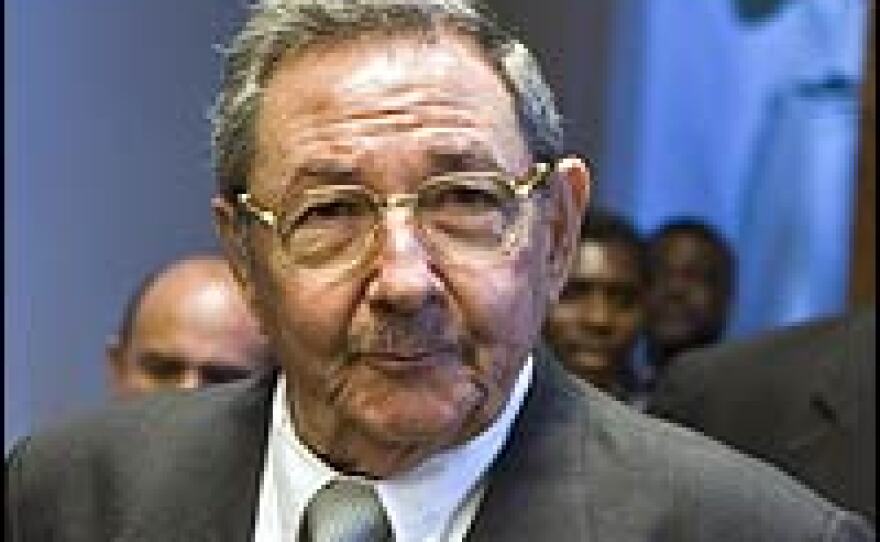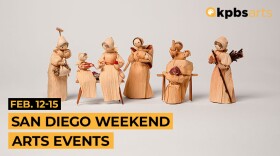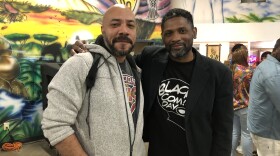
Although Fidel Castro has officially announced that he's giving up his position as Cuba's president, his history suggests that he could still play a potent role in the country's politics.
Since his earliest days in power, the Cuban leader has demonstrated that he doesn't necessarily need a title to exert control over the island nation's government.
Even if the ailing 81-year-old leader becomes further incapacitated or dies, much of his influence may be maintained by Cuban officials who owe their careers to him and are closely aligned with his ideology.
Power in the Early Days
Castro and his revolutionaries were hailed as heroes when they rolled into Havana in early 1959, after fighting a two-year guerrilla war that toppled dictator Fulgencio Batista. Even before arriving in the capital, Castro named the head of the Cuban Bar Association, Jose Miro Cardona, as prime minister, and called on him to form a provisional government.
Castro originally had no political title, but had already named himself head of the revolutionary army, and he simply extended that role to become commander in chief of the Cuban armed forces.
Castro's arrangement with Miro lasted barely a month before Miro abruptly resigned as prime minister. Castro had repeatedly side-stepped the government by intervening in labor disputes and promoting a new land-reform law.
He also demonstrated his willingness to exercise power ruthlessly and unilaterally by ordering the executions of hundreds of police and informers who had helped enforce the Batista regime.
Relations with the United States
Castro was sworn in as prime minister of the provisional government in mid-February of 1959, but he continued to insist that his was a democratic movement that opposed dictatorships.
During a visit to New York City later that year, he also said he opposed communism, but his government had begun nationalizing property owed by big American corporations, such as United Fruit Company.
Although the United States had quickly recognized the provisional government, American officials were wary. President Dwight Eisenhower refused a meeting with Castro, a snub that may have made the young revolutionary more open to overtures from America's Cold-War rival, the Soviet Union. When Cuba signed an agreement to purchase Soviet oil, U.S.-owned refineries refused to process it, and Castro promptly seized the refineries. The U.S. retaliated by breaking off diplomatic relations.
After the failure of the U.S.-sponsored Bay of Pigs invasion in 1961, Castro declared that Cuba was to be a communist nation, prompting the United States to impose a trade embargo against the island that has remained in force ever since.
Institutionalizing His Power
In 1976, Castro institutionalized his power by transforming the office of prime minister into president of the Council of State. His brother Raul became vice president of the council and also continued as second in command of the Cuban armed forces.
Although he insists that he has not promoted a cult of personality — resisting efforts to have monuments raised in his honor — Castro dominated Cuba's public life for decades with rallies, lengthy speeches and pronouncements in the state-run media.
Since Castro became incapacitated by illness in July of 2006, Raul Castro has been acting president and commander-in-chief. Raul was involved with the Cuban Communist Party as a teenager, long before his elder brother, and is thought to remain committed to the ideology.
The Roles of Raul and Others
Raul has been regarded as Fidel Castro's enforcer, who might be expected to maintain Cuba's communist structures. At the same time, Raul also is regarded as a practical politician. He is credited with persuading his brother to allow greater freedom for private entrepreneurs in the country's food markets, averting a serious food crisis after the fall of the Soviet Union, when Cuba lost generous Soviet food subsidies.
Other, younger members of the Cuban leadership have grown up in Fidel Castro's shadow and built their careers by implementing his plans. They include Ricardo Alarcon, a 71-year-old former foreign minister and United Nations representative who has been Castro's spokesman in international affairs.
The current Cuban foreign minister, Felipe Perez Roque, began his career at 21 as Fidel's personal secretary, and has worked at his side for more than 20 years. Like many other members of Cuba's top government circles, he has no political base of his own and strong loyalties to Castro's policies.
Cuba's economic policy is directed by Carlos Lage Davila, the 56-year-old head of the Council of Ministers. He's considered to be a leader of what Fidel, in his resignation letter, called the "intermediate generation," whose role has been to implement the president's policies.
Fidel Castro has said that he intends to keep writing his frequent opinion pieces in the Cuban media, known as "Reflections by Comrade Fidel."
Unless the country's new leadership makes an expected departure from its current path, those opinions are likely to hold sway for at least as long as Castro remains alive.
Copyright 2022 NPR. To see more, visit https://www.npr.org. 9(MDAzMjM2NDYzMDEyMzc1Njk5NjAxNzY3OQ001))






